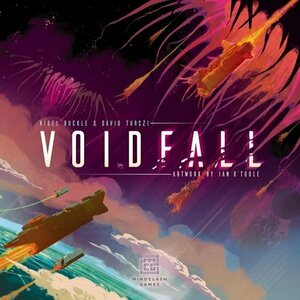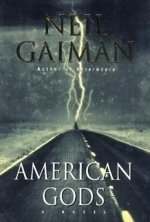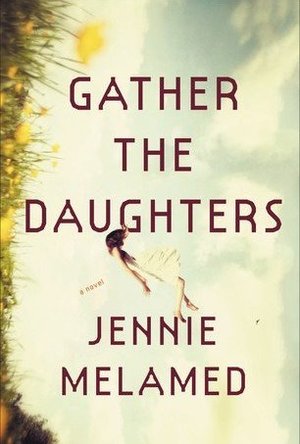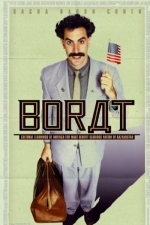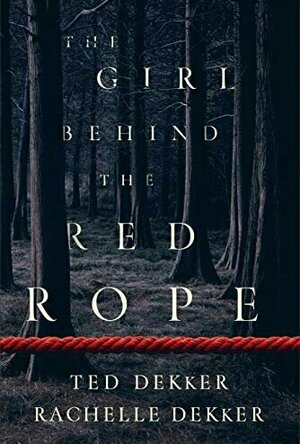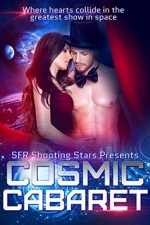
Cosmic Cabaret
Rosalie Redd, Jayne Fury, C.J. Cade, Kat Vancil, Blaire Edens, Diana Rivis, Tessa McFionn, Dena Garson, Selene Grace Silver, Cailin Briste, Athena Grayson , Jenna Lincoln and Kerry Adrienne
Book
Where Hearts Collide in the Greatest Show in Space Join us aboard Blue Star Line’s crown jewel,...
Science_Fiction Romance Anthology
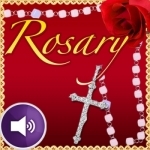
Rosary Deluxe for iPhone/iPad (The Holy Rosary)
Reference and Utilities
App
A best Christmas gift for your family. Rosary Deluxe with complete audio and text for iPhone and...
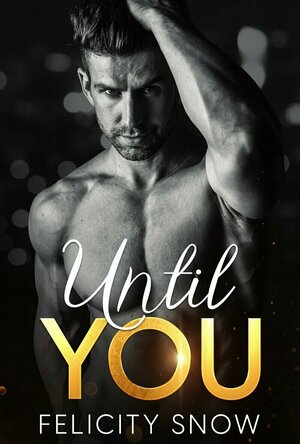
Until You
Book
Paul It feels like I’ve been drowning for five years, barely keeping my head above the water. I...
Contemporary MM Romance
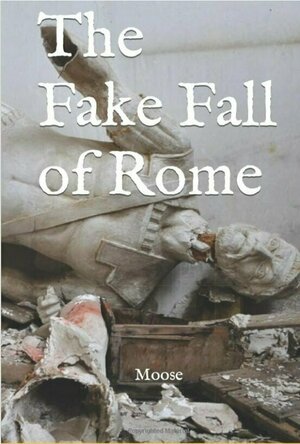
The Fake Fall of Rome
Book
This text contains material that you cannot unread. Your thinking process will be permanently...
history
BobbiesDustyPages (1259 KP) rated American Gods in Books
Aug 30, 2017
From start to finish I just did not want to put down American Gods, I just always really enjoy Gaiman's writing style he manages to create a world within a world that just feels so effortless and downright real. Their are so many amazing characters and most of them I just wanted more of, also with the amount of character we have we really get something that we never do and that is people of color represented and it is WONDERFUL .This is one of those few books that as soon as I was finished I wanted to turn it over and start reading again.
Characters:
Shadow Moon - I could wax poetics about Shadow, he was quiet and kind of dry and usually that would have me think a character is kind of boring but just not with Shadow he drew me and made me fall in love. It was a so a happy surprise to have a main protagonist who is a person of color which is something that is need so much nowadays.
Laura – I really loved how Laura was handled, most characters who died the way she did would have been either thrown aside or made to be hated but that is not the case here, I love how she helps Shadow and her love for him really comes through but also that we do see her as her own person.
Mr. Wednesday - What can I say about Wednesday besides from the moment you meet him I don't trust him but like Shadow I can't help what wanting to follow him where he's taking me.
The Gods - even though there are a lot and I mean a lot of characters throughout the book I found myself never feeling overwhelmed by them Gaiman really found a way to give them all a voice but in no way overshadow the plot or any of the other characters.
Plot:
We meet Shadow a few days before his release from prison he is taken into the wardens office to me given the devastating new that his wife Laura had been killed, when he is released from prison he meets a strange man know as Mr. Wednesday who offers Shadow a job to accompany him across America so he can recruit others to fight in an upcoming war, The Old Gods vs. The New Gods.
The story takes you to so many places and you meet so many just unique characters I love the differences between the gods how the old are left to do what they have to service feeding off of any belief they can get and how the new gods aren't at all what I thought I was going to be getting because let's face it there are not as many religious gods any more instead we worship TV and technology the way the Greeks worshiped the gods of Olympus.
Personal thoughts:
I could not get enough of American Gods even though the book was pretty hefty and it took me sometime to finish I still wanted more, Gaiman just creates such a wonderful and unique worlds that I could stay lost in them forever.
Zuky the BookBum (15 KP) rated Under the Banner of Heaven: A Story of Violent Faith in Books
Mar 15, 2018
<b>TRIGGER WARNING: rape, incest, domestic abuse, child abuse, animal abuse, child murder</b>
I’m speechless. (OK, maybe not). What the <i>heck</i> did I just read? You’re telling me this is <b><i>non-fiction?</b></i> ...How? <b>HOW?</b> This isn’t just some freak incident either, people live like what’s described in this book, I’m baffled by it. I mean I’m a little baffled by strict religious following anyway (no offence meant) but Mormonism is just on another level.
The story of Mormonism is so strange because Joseph Smith was a fucking control freak and swindler but also the way society got away with treating him and his followers was awful. You really can’t pick a right and wrong side, they’re both pretty terrible.
This book's main focus is on how people's strong faith in Mormonism makes them believe they're above the laws of the land, so they go and commit crimes they think are justified and right. For example, Dan and Ron Lafferty, who <i>truly</i> believe God has spoken to them and told them they need to kill their brothers wife and young baby. A deed done by them so brutally, the poor baby was basically beheaded. <b>Clearly this book isn’t for the faint hearted.</b>
One of the saddest moments in this book is when Krakauer meets a Mormon family and their young daughter (I think she was between 8 to 12) comes into the room with floor plans of her dream house, where she's drawn out several different rooms for the other wives of the husband she is going to share. How <i>awful</i> is that, to believe that you must share your husband with other women, because for men of the Mormon faith, women are just child bearers, nothing more. <b>Joseph Smith actually declared God said "women shall be man's handmaid".</b> For this young girl to be planning her life with a shared husband and feeling that's <i>normal</i>, even feeling <i>happy</i> about it, is a terrible, terrible thing to think about.
This took me around 3 months to finish, not only because I accidentally left this in my dad’s suitcase when I came back from Spain, but also because this was such heavy non-fiction reading. Not only did it describe, in gruesome detail, the crimes committed by those under the Mormon faith, it was also a long historical timeline of how Mormonism was created and has grown to where it currently sits today. (<i>Did you know,</i> there are currently more Mormons on this planet than Jewish people?) Not to mention the confusion it causes when trying to remind you who everyone is and how everyone is related, because they’re pretty much <i>all</i> related through marriage.
This is certainly an interesting read. I'm sure you’ve heard about Mormon’s and the Book of Mormon and polygamy, etc, but never really looked further into it. Well, for those of you that would like to look further into it, then this is the book for you! It's incredible to read all about how Joseph Smith magicked up Mormon faith and how gruesome and evil polygamy really is.
I really recommend this book for all of you who love learning about religions or just love to have some random shocking facts to dish out around the dinner table. A seriously interesting, if not disturbing read.
Zuky the BookBum (15 KP) rated Gather the Daughters in Books
Mar 15, 2018
On the island they have a Bible / religious text equivalent called Our Book and within the book there are the "Shalt Not's", for example "Thou shalt not disobey thy father", or "Thou shalt not touch a daughter who has bled until she enters her summer of fruition". Living on the island is simple if you don't question or break the rules.
For a woman to have a decent life on the island, there's only one piece of advice: have son's.
If you can't already see what I'm getting at from my short description above, then let me put this simply. <b>This is dark.</b> Gather the Daughters is a very ominous, disturbed and often times uncomfortable read.
Melamed's writing is stunning. The island she has created comes alive in your mind so easily with every description of the trees, the houses, the beach. The shadiness of the men, the melancholy of the woman, and the fear of the daughters can really be felt and you can almost touch the tension of what is looming, as it gets heavier and heavier with every turn of the page.
I loved the use of the four different characters to tell a story. To begin with, it is a little confusing - who is who? But you get used to it very quickly! Each of the girls we follow are so well developed, we climb inside their shoes and exist as they do for the length of their chapter. Personally, Rosie was my favourite character of them all, and she wasn't even one of the main ones! That just goes to show how well structured every single girl in this book was... when you feel you can love a side character over a main one.
I guess this book only gets a 4 stars because it wasn't entirely what I was expecting... and sometimes that's a good thing, your expectations are exceeded, but that wasn't the case for this one. It was a lot slower moving than I would have liked, there were panicky, heart racing moments, but not a lot of them, and I wasn't really satisfied with how everything ended. I don't want to say too much because of spoilers, but yes, not what I was hoping for.
Would I class this as sci-fi? No. As horror? No. As a thriller? No. For me, this felt more like a general fiction novel with some more disturbing aspects than many of the others in the genre have.
Overall, though, this is worth picking up to read. It's definitely uncomfortable to read at times and I did feel a little bit squirmish at what is implied throughout, but it's such a gorgeously written book and there are some excellent exciting moments. As this is Melamed's first book, I can see her going big places with more fiction in the future!
<i>P.S. If you don't feel comfortable reading books about incest / child sexual abuse please don't read this and then rate it 1 star because you found the subject matter difficult to read. That's just not fair.</i>
Gareth von Kallenbach (980 KP) rated Borat (2006) in Movies
Aug 14, 2019
Naturally one would expect a fish out of water story, but fans are treated to much more than this as Borat and his backwards thoughts and practices and given form all over the U.S. often to the shock of those around him as well as howls of laughter from the audience.
You see Borat is a man with a few issues. He is anti-Semitic, a misogynist, ignorant and uncultured, and not ashamed of his actions which grow bolder and more outrageous as the film progresses.
The opening segments in his native land like the entire film is filled with one rapid fire joke after another as Borat introduces us to his family and key people in his town such as the town rapist and his sister the prostitute. As funny as the setup and the settings are, it is the clever comments that Cohen slips in that allows Borat to make some biting social and political commentaries.
Once in America, he travels from New York to Los Angeles making several stops along the way with side splitting results as Borat encounters events ranging from a rodeo, polite society, pop culture, a religious revival and much more.
The amazing thing about the film is that it never grows old and over the roughly 84 minutes of the films running time, there are plenty of jokes and a absence of slow spots which are often so common in comedies today.
Cohen is great at portraying Borat as a likeable guy who does not know any better which makes his comments and actions so easy to take. Cohen who is himself Jewish is able to get away with making jokes about his faith as he is doing it through the persona of someone who is ignorant to many realities in the world.
In a way the film allows us to laugh at ourselves as well as Borat is supposed to be a foreigner who does not know better, but is wiser in some ways due to his ignorance of topics. There is a scene where Borat buys a car is a true look at consumerism in the West as he spells out in graphic detail what he wants in a car and what he expects it to do for his love life.
Not only is the scene outrageous but it underscores the message of sex appeal and desirability that is prevalent in car ads aimed at men. Instead of hinting at it, Borat lifts the lid on the subject and takes it on with no punches pulled.
The film is tricky to review as one of the greatest joys of the film is the sense of discovery and not knowing where or what Borat will say or do next. Suffice it to say, that the film is a comedic masterpiece that will have you shocked and laughing harder than any film in recent memory.
Heather Cranmer (2721 KP) rated The Girl Behind the Red Rope in Books
Oct 15, 2019
As I stated previously, the synopsis of The Girl Behind the Red Rope definitely left me intrigued. Grace has seen what not following her religious community's strict rules can bring. However, when a young boy makes his way into their tight community, Grace begins to question everything she's been taught which puts her in extreme danger.
Everything flowed so smoothly including the pacing which never let me down. I was constantly finding excuses to finish reading The Girl Behind the Red Rope since I had to know what would happen next. While I felt the plot was predictable more often than not, I still really enjoyed this book. I felt like their were no cliff hangers, and all of my questions were answered by the ending.
As for the Christian aspect of this book, it didn't read like a Christian novel most of the way through. I'd say it was probably around the last quarter of the book where Christianity came into play. I didn't think it was overly preachy although I think that those who aren't very spiritual or who are agnostic or are atheist may feel it's a tad on the preachy side. I would say The Girl Behind the Red Rope is more anti-religion and pro-Christianity overall. That's what I took from it anyway. It does have a really good message regarding love though which I found really nice to read about.
I very much enjoyed how every character in The Girl Behind the Red Rope was written. I felt like I was actually part of their world, stuck in the same community with them. Grace is a very likable character. I loved how the characters made her feel like a real person by giving her the conflicting thoughts as to who was to be believed throughout the novel. I enjoyed Grace's thought process about everything throughout the book. While I knew who and what she should choose, it was easy to see why she was so torn. Bobbie and Sylous were both very intriguing characters. I never trusted Sylous from the start, but Bobbie was one character that I wasn't sure if she actually had Grace's best interest at heart or if she had ulterior motives. There were times I despised Rose, not because she wasn't written poorly, in fact, she was written perfectly, but because of how much trust she put into Sylous and how overly judgmental she could be sometimes. I know that Rose was only going on what she thought to be true, but there were just so many times I wanted Rose to disappear! My favorite character was Eli. I loved his innocence and how happy go lucky he was.
Trigger warnings for The Girl Behind the Red Rope include cult mentality, violence, and murder.
All in all, The Girl Behind the Red Rope is such a fantastic read with such a powerful message. The characters are written beautifully, and the plot is done superbly. I would definitely recommend The Girl Behind the Red Rope by Ted Dekker and Rachelle Dekker to those aged 15+. Christians will definitely enjoy this book, but I think even non-Christians will probably love it as well.
